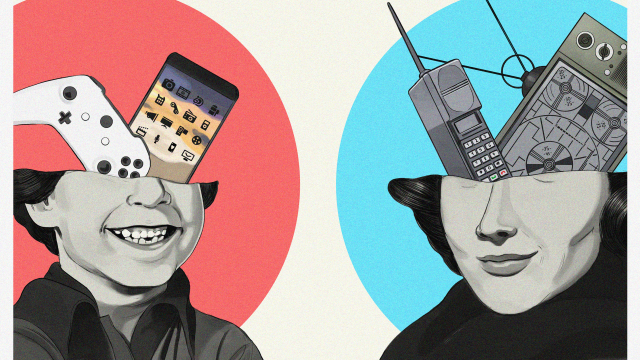As a parent raising a kid in The Time of the Screens, I am often trying to strike that balance between allowing him to explore age-appropriate technology while also determining how much is too much.
Just last night, as we were leaving my son’s karate class, he began complaining that all his little karate buddies bring their Nintendo Switches with them to play before training starts and he is the only one who isn’t allowed to bring it. Without hesitation, I dove right into one of my favourite (i.e., annoying) lectures:
“I am not the parent of those other kids; I’m the parent of you,” I began. “It’s my job to raise you to be able to function in the world, and a big part of life is about waiting. You have to be able to wait for five minutes for something to start without having a screen in your face.”
I was missing the point, he told me: “It’s not that I can’t wait; it’s that I feel left out.”
Oh. The answer was still no, but it was a reminder for me that kids view screens less as a distraction from real life and more as a way to bond with each other.
We are raising a generation of kids who are using devices and connecting with each other through technology in a way we didn’t—and in some ways, still don’t—experience. So when I heard about a new podcast called “Their Own Devices” with the tagline “MTV Parents Raising YouTube Kids,” I knew I had to check it out.
The show is hosted by Marc Groman (a former White House tech and privacy adviser) and David Reitman (an adolescent medical physician), who are married and raising their teenage son. They dive into topics like social media, screen time, online gaming and privacy—and they interview other parents, experts and actual teenagers.
Marc says he and David have studied these issues as professionals but now they’re experiencing them from a personal angle with their own son. They created the podcast to share their expertise and experiences with a broader audience.
“I have worked on some of the most challenging and high-profile privacy and cyber security issues facing society today,” he says. “David speaks with teens and their parents every day about social media, gaming, sleep deprivation, anxiety, sexting, and a wide range of issues large and small. We know the issues. We understand the tech. We’ve given advice hundreds of times to others. And then one day, it’s our kid with the smartphone, game console, laptop and social media. Suddenly, we saw the issues from a different perspective.”
In the very first episode, which was released in November (new episodes are available each Thursday), I learned a few things from 17-year-old Athena that blew my mind.
1. All about the “finsta”
A finsta is a fake Instagram account; teens often have their regular Instagram account that their parents know about and then a secret “finsta” account where they post totally different content. Athena says all of her 100 finsta followers are also finsta accounts themselves. But, she says, the stuff posted to finstas isn’t necessarily bad.
“I think that’s where things start to get a little bit twisted,” she says on the show. “Cause a lot of times parents think whatever my kid is hiding from me must be harmful or bad, but that’s not always the case. Sometimes it’s just for privacy or it’s just, ‘You wouldn’t understand this so I’m going to hide it from you.’”
2. Teens don’t exchange phone numbers anymore
“What’s your phone number?” has apparently been replaced by “What’s your ‘snapcode’?” Athena said teens don’t text much; they message each other through apps like Snapchat instead because “it’s way easier.” The main exception? Her parents. “Every time I try and teach them how to use Snapchat, it does not work. At all.”
3. They get burned out on social media, too
Every last picture in her feed is so heavily edited and “perfected” with filters, Athena says, and kids know how to pose juuust right for the most flattering look that sometimes, she needs a break from the un-reality of it. In fact, for the past year, she’s restricted her own social media use by not scrolling through her feeds first thing in the morning.
“I would see pictures of the night before, people doing their own thing, and they always look really happy … and (I) wouldn’t be there,” she says in the interview. “And it’s like, oh, well that’s annoying. And it would just put me in a terrible mood.”

Comments